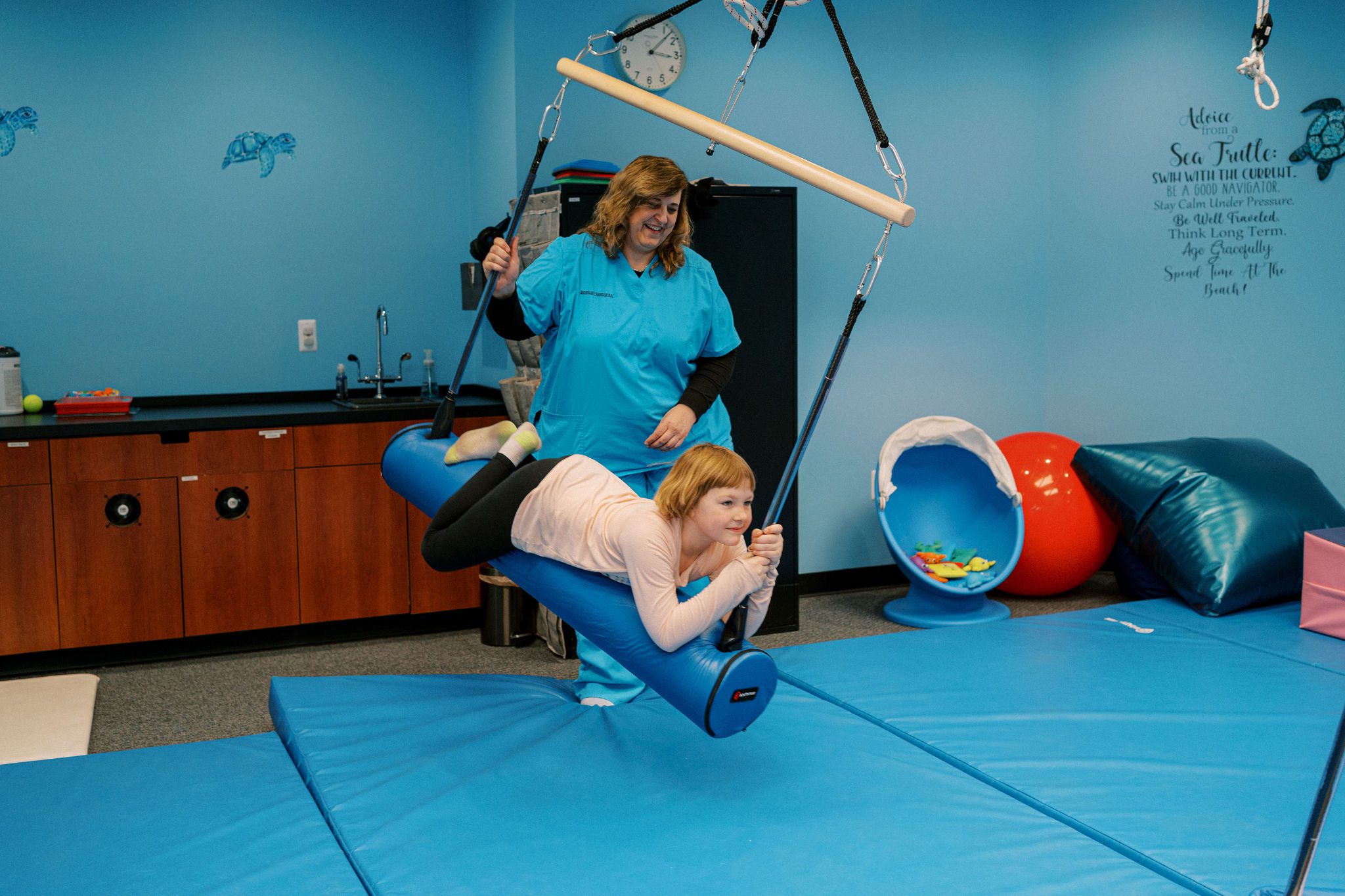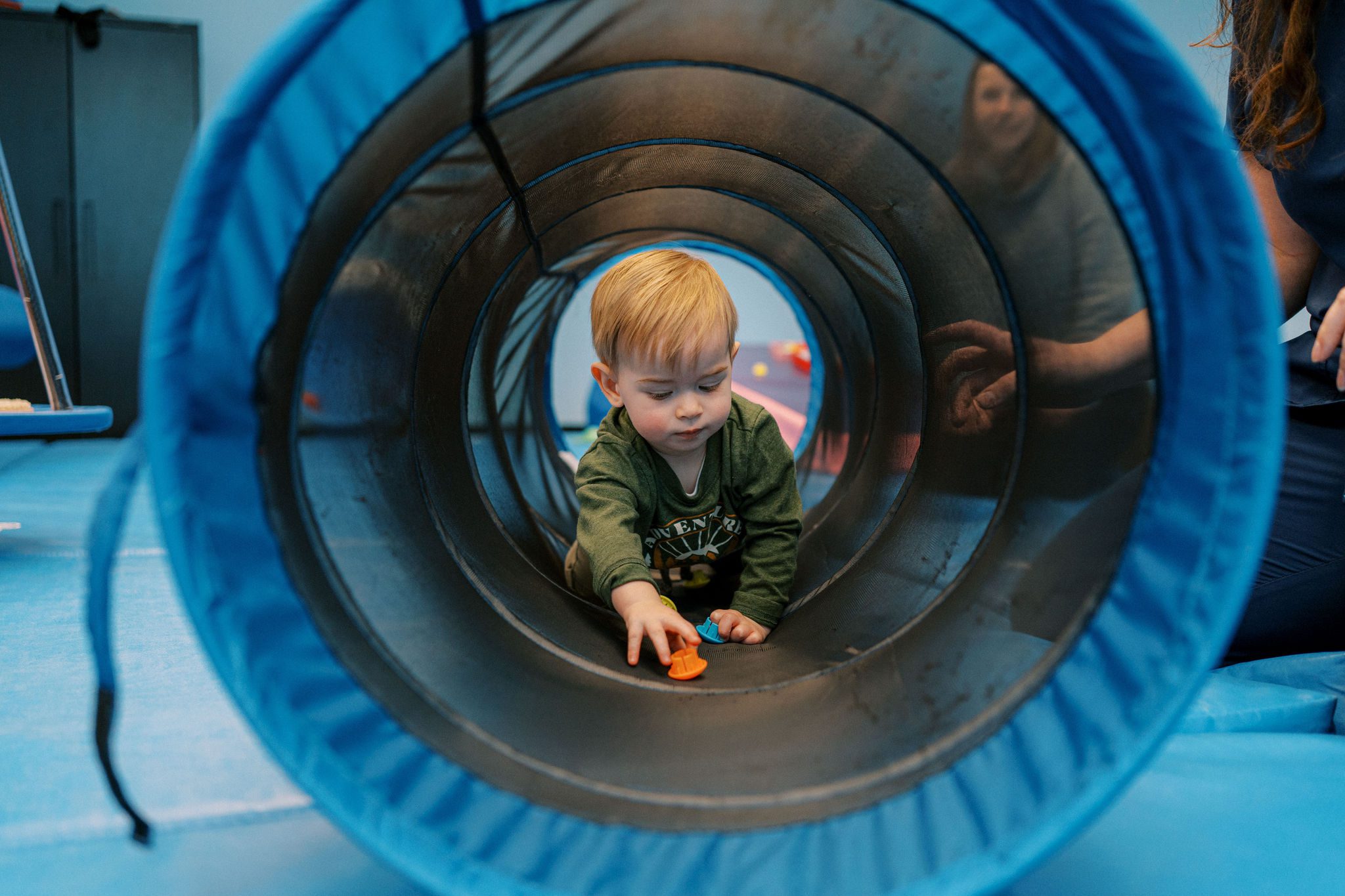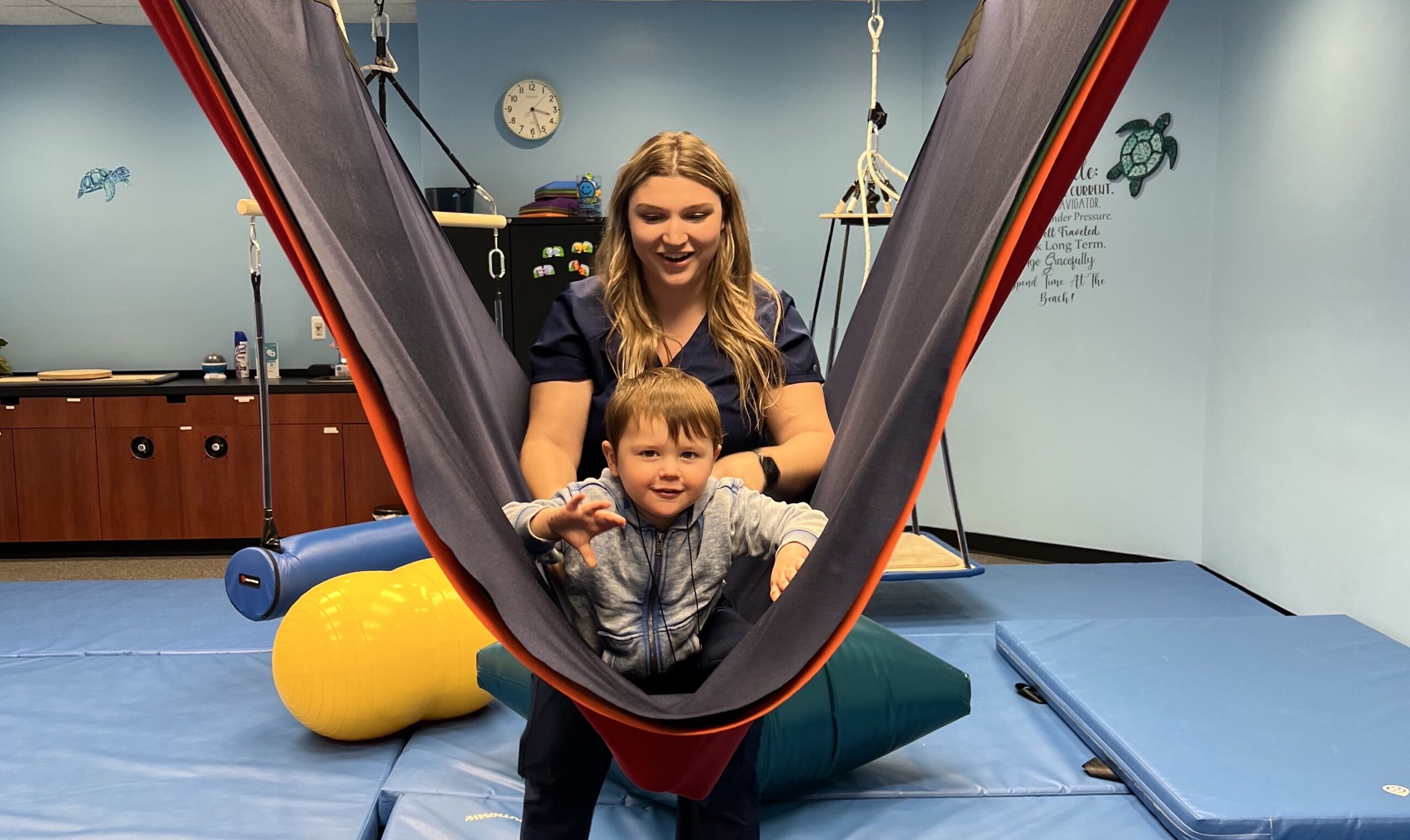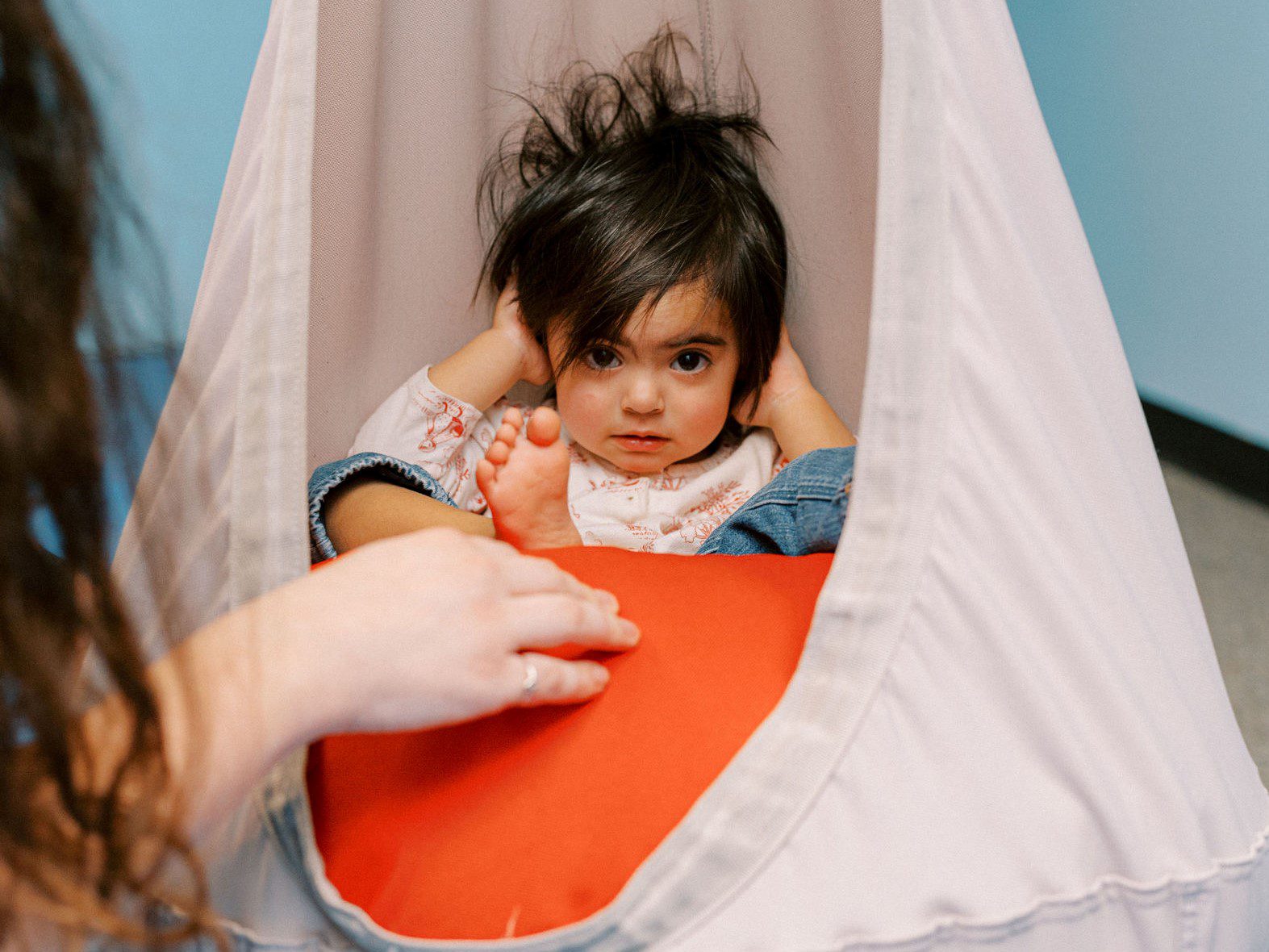Our sensory experiences through sight, sound, taste, touch (tactile), balance and movement (vestibular), and body positioning (proprioception) help us make sense of the world by organizing and interpreting these senses; this is called sensory integration (SI).
Michigan Pediatric Therapy offers play-based SI therapy with trained occupational therapists. Sessions may include the use of equipment, such as trampolines, swings, crash pads, weighted vests or blankets, and an array of sensory tactile bins to assist children with sensory integration/ processing issues.

Possible Signs of Sensory Integration/Processing Issues:
Coordination difficulty
-
- Appears clumsy or awkward
- Poor reflex integration
Overly sensitive to touch, movement, sights, smells, tastes, and sounds
-
- Avoidance of certain textures of clothes or foods
- Fearful of movement, such as swinging, spinning, etc.
- Agitated by washing hands and hair, bathing, tooth brushing, etc.
Activity level that is unusually high or low
-
- Always on the move or slow to engage
Under-reactive to sensory stimulation
-
- Seeks out sensory experiences, such as spinning or crashing
- Oblivious to pain or discomfort
Behavior organization is poor
-
- Impulsivity or lack of self-control
- Difficulty calming self when upset
If you think your child may be struggling with sensory issues, please reach out. We’re here to help: (248) 939-4030






